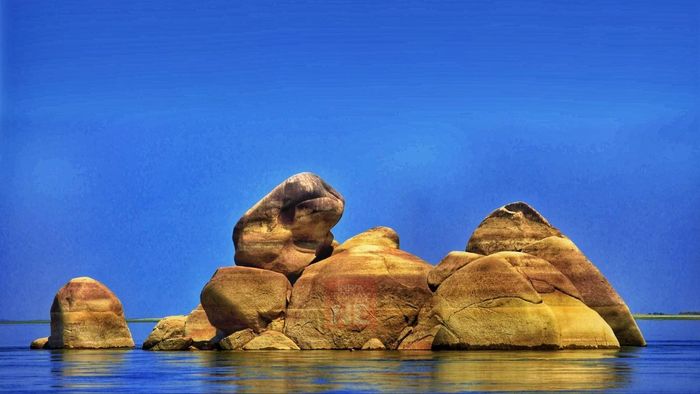Burha-Burhi Than: Erosion and neglect threaten Dhubri's religious heritage
The Government of Assam's Tourism Department is facing growing criticism for its failure to preserve the state’s ancient landmarks and cultural heritage in western Assam’s Dhubri, Goalpara, and South Salmara-Mankachar districts, which is pushing several mythological and historical sites towards ruin.

- Dec 13, 2024,
- Updated Dec 13, 2024, 2:50 PM IST
The Government of Assam's Tourism Department is facing growing criticism for its failure to preserve the state’s ancient landmarks and cultural heritage in western Assam’s Dhubri, Goalpara, and South Salmara-Mankachar districts, which is pushing several mythological and historical sites towards ruin.
The region is home to numerous ancient landmarks, including Salkocha, Bahalpur, Chapar, Bilasipara, Mahamaya, Panbari, Gauripur, Golakganj, and Satrasal, many of which are in dilapidated and unreserved conditions. One such site, the Burha-Burhi Than, holds significant historical and religious importance but has been overlooked for conservation efforts.
A witness to history situated on the southern bank of the river Brahmaputra in Dhubri district, Burha-Burhi Than is a unique site featuring a small rocky hill surrounded by trees and boulders. According to local legend, the site is named after two prominent rocks—one upright, symbolizing Lord Shiva (Burha/Old Man), and the other horizontal, representing Parvati (Burhi/Old Lady).
Also Read: Assam: Farmer dies of electrocution in Bajali due to faulty power line
The site’s spiritual and cultural relevance is evident as Hindu devotees gather annually on the last day of the month of Sawan to perform religious rituals. A vibrant fair accompanies these festivities, attracting people from diverse communities. Despite this, Burha-Burhi Than remains relatively unknown and unrecognized compared to other religious and historical sites in the state.
The Than is now under severe threat due to erosion by the Brahmaputra River. Local residents fear that without immediate intervention, the site may be lost forever. Historically significant yet largely ignored, Burha-Burhi Than ranks second only to "Pagla Tek" among undivided Goalpara’s religious landmarks.
“Burha-Burhi Than has the potential to be a prominent heritage site if the government takes appropriate measures for its preservation,” commented a local resident. The community has urged the Assam government to recognize the site’s historical and cultural value and implement conservation efforts to safeguard it for future generations.
The neglect of such sites highlights the urgent need for a comprehensive heritage conservation plan. If prioritized, the restoration and promotion of Burha-Burhi Thana could not only preserve its legacy but also attract tourism, benefiting the local economy and cultural identity of the region.